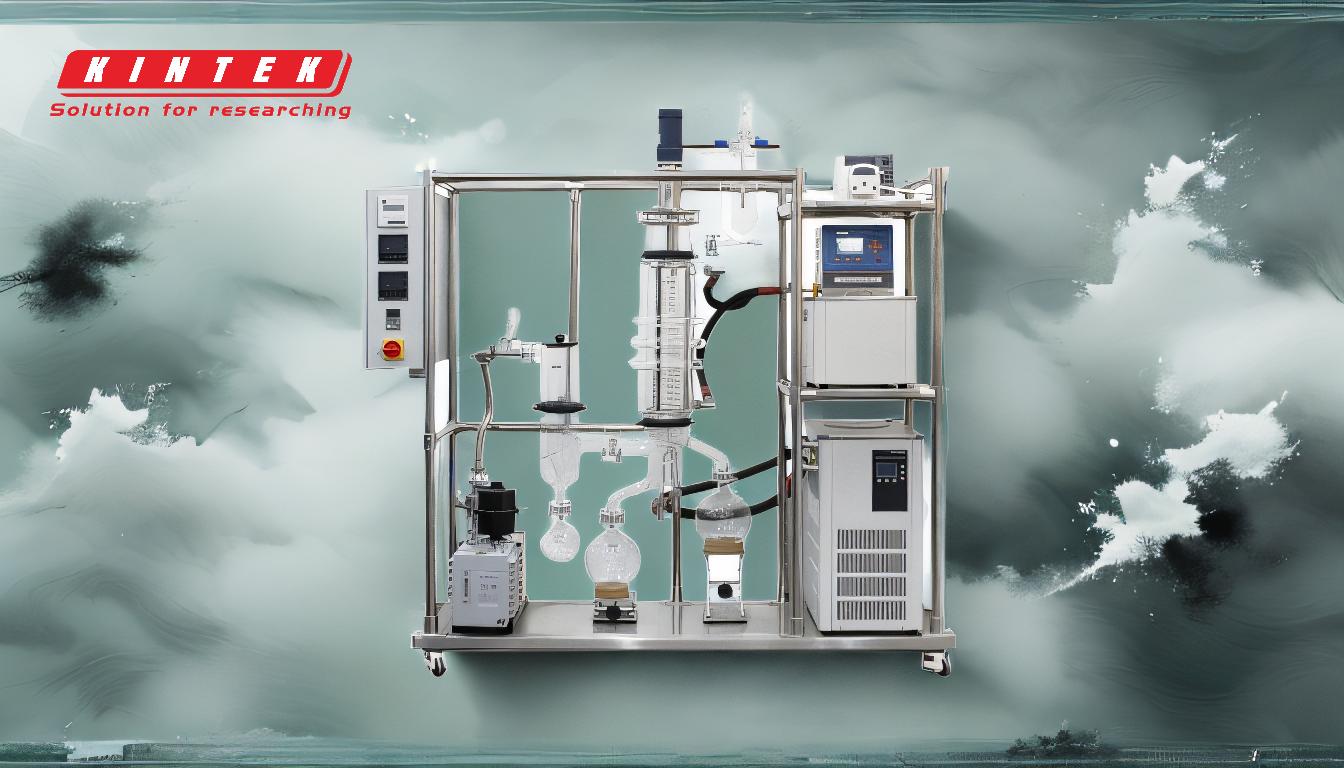Vacuum distillation is a superior method for separating and purifying substances, particularly in industrial and laboratory settings, due to its ability to operate at lower temperatures and pressures. This process reduces the boiling points of compounds, preventing thermal degradation, enhancing purity, and improving efficiency. It is especially beneficial for sensitive materials, close-boiling mixtures, and high-value products. Additionally, vacuum distillation can lower capital costs by reducing the size of distillation equipment, although it may slightly increase operating costs. Overall, it offers a safer, more precise, and cost-effective solution for distillation processes.
Key Points Explained:

-
Lower Boiling Points and Reduced Thermal Degradation:
- Vacuum distillation lowers the pressure within the system, which in turn reduces the boiling points of the compounds being distilled.
- This allows the process to occur at much lower temperatures, minimizing the risk of thermal degradation or chemical reactions that could damage sensitive materials.
- For example, sensitive organic compounds that might decompose or combust at higher temperatures can be safely distilled under vacuum conditions.
-
Enhanced Separation of Close-Boiling Mixtures:
- Vacuum distillation is particularly effective for separating mixtures with components that have similar boiling points.
- The reduced pressure allows for fewer equilibrium stages, making the separation process more efficient and reducing the need for large, complex distillation columns.
- This is especially useful in industrial applications where high purity and yield are critical.
-
Increased Efficiency and Capacity:
- By operating at lower temperatures and pressures, vacuum distillation increases the overall efficiency of the process.
- It reduces the mean residence time of the compounds in the distillation column, which helps prevent degradation and improves throughput.
- This leads to higher capacity, better yields, and purer products, making it a preferred method for high-value or sensitive materials.
-
Cost-Effectiveness in Equipment Design:
- Vacuum distillation can reduce the capital costs associated with distillation equipment.
- Lower operating pressures allow for smaller column heights and diameters, which decreases the overall size and cost of the distillation setup.
- While operating costs may be slightly higher due to the need for vacuum systems, the savings in equipment costs often outweigh this expense.
-
Precision and Control:
- Vacuum distillation systems, such as rotary evaporators (rotovaps), offer precise control over the distillation process.
- This ensures that the desired components are separated without altering their chemical properties, making it ideal for applications requiring high accuracy.
- Rotovaps also provide continuous mixing and increased surface area, further enhancing the efficiency of the process.
-
Safety and Product Integrity:
- The use of vacuum conditions makes the distillation process safer by reducing the risk of overheating or combustion.
- This is particularly important for volatile or flammable compounds, where traditional distillation methods might pose significant safety hazards.
- Additionally, the gentle conditions preserve the integrity of high-value products, ensuring a pure distillate without damage.
-
Versatility Across Applications:
- Vacuum distillation is widely used in both industrial and laboratory settings, from large-scale chemical production to small-scale research applications.
- It is suitable for a variety of materials, including pharmaceuticals, essential oils, and organic compounds, making it a versatile and reliable method for many industries.
In summary, vacuum distillation is a superior method due to its ability to operate at lower temperatures, enhance separation efficiency, and preserve the integrity of sensitive materials. Its cost-effectiveness, precision, and safety make it an indispensable tool for a wide range of applications.
Summary Table:
| Key Benefit | Description |
|---|---|
| Lower Boiling Points | Reduces thermal degradation by operating at lower temperatures. |
| Enhanced Separation | Efficiently separates close-boiling mixtures for high-purity results. |
| Increased Efficiency | Improves throughput and capacity while preserving sensitive materials. |
| Cost-Effective Equipment Design | Reduces capital costs with smaller, more efficient distillation setups. |
| Precision and Control | Ensures accurate separation without altering chemical properties. |
| Safety and Product Integrity | Minimizes risks of overheating and preserves high-value product integrity. |
| Versatility | Suitable for pharmaceuticals, essential oils, and organic compounds. |
Ready to optimize your distillation process? Contact us today to learn how vacuum distillation can benefit your application!











